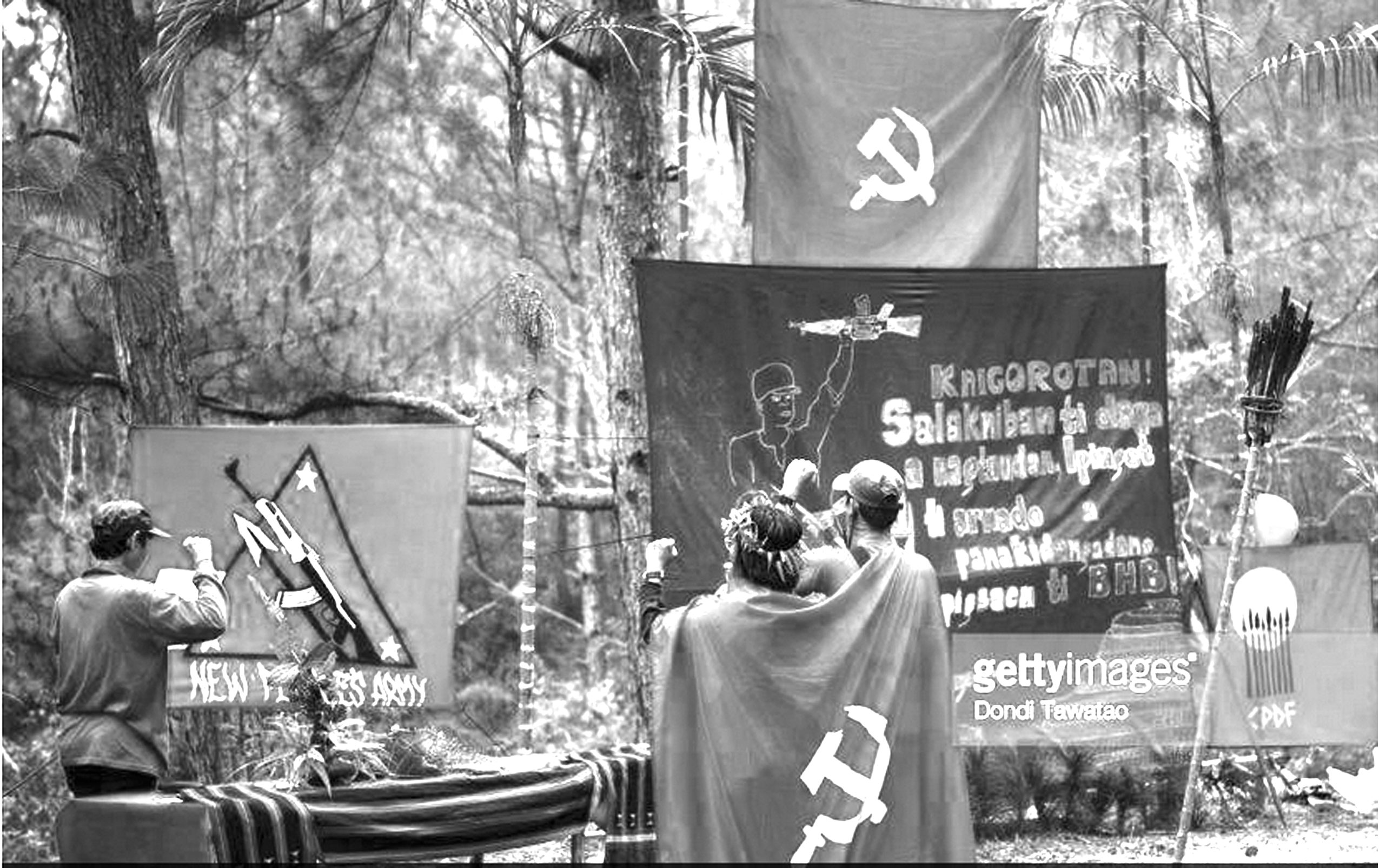Rebirth of Drug Victims
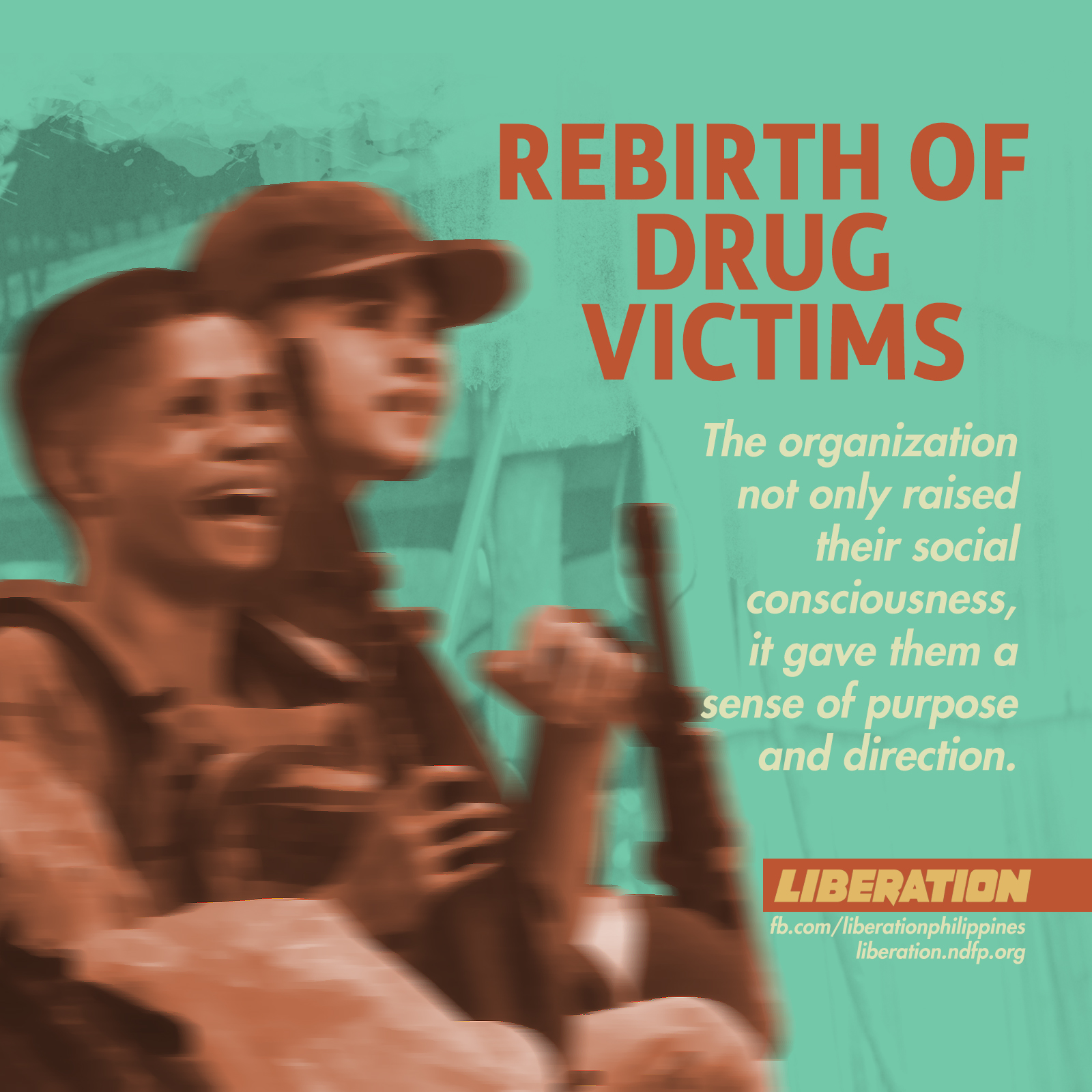
Pat Gambao
A Run for Noble Meaning
After being a user-runner of narcotic drugs in a town in Central Luzon, Ato (not his real name), 21 years old, who had been into the addictive habit since he was 14, has metamorphosed to become a runner for the NPA and a youth organizer.
The transformation all started that night he was “hostaged” by a group of armed men whom he first thought were policemen. But they did not have a mobile car. Instead of taking him for a ride, they led him to the green fields where mango trees thrived. Other armed men came and they eventually introduced themselves as NPA. A man and a woman started talking to him as he trembled in fear. They said they knew about his felonious activities. They pointed out that that was a grave crime to the people and the revolutionary movement. He was further interrogated about his activities, made to explain and finally warned sternly. He thought it was his end but to his surprise they escorted him back home where he found his wife, parents and siblings waiting. He realized he had been set up. For the first time, he felt terribly shamed as the NPA enjoined him before his family.
Since then Ato persevered to shake off the bad habit. In time, upon learning he had reformed, the NPA visited him. This time instead of admonition, the NPA discussed with him the situation in their barrio and of its people, the how and why of it. Later, having confirmed that has really changed, the NPA began inviting him to meetings, study sessions and in the formation of youth organizations in the barrio. He organized even those he used to sell drugs to. This time, Ato coaxed the youth to worthwhile activities that would keep them away from drugs. He even helped some of them find jobs in construction projects where was working.
That began Ato’s involvement with the NPA. That also fired his interest in the cause of his barriomates and his eagerness to serve them, especially the youth.
He volunteered to help the NPA catch the big-time dealer who used to supply him with addictive drugs when they received reports that he was in the vicinity. The NPA had actually received many complaints about this guy. The NPA educated Ato on revolutionary justice and the workings of the people’s court. It enlightened him on the process undergone by the accused, who had committed a crime against the movement and the people–from the time complaints were received by the people’s government or the revolutionary mass organizations to the time the case was heard and until conviction.
When the big-time drug dealer was spotted, the NPA moved to arrest him to be tried in the people’s court but he fought back. The arresting army was forced to retaliate and shoot him. Justice was given at last to the lives he had destroyed for his personal gain.
Fulfilled Dreams in the Womb of the Revolutionary Movement
The scarce prospects of jobs and money in the rural areas have drove the youth to the cities. Bay and Dong (not their real names) were among those lured by the mythical marvel of the cities. They left home and ventured to seek greener pastures in the cities of their dreams.
Both Bay and Dong came from peasant families in the Visayas. Their families own small farms planted to rice and corn, as well as some farm animals. But due to the expensive farm inputs and usurious rates on their borrowed capital, they were hard-pressed.
Bay is the ninth of ten siblings. His competence in tending to farm animals, left with him the responsibility for their care which he enjoyed doing. Meanwhile, aware of the big expenses incurred in the schooling of his siblings, he was pleased to give way. Bay finished grade two only.
Eventually, as life turned formidably difficult, their farm animals, to which he had developed a special rapport, were one by one sold. To his dismay, he left their town with a cousin for Cebu City.
In Cebu, Bay bumped into rogues who pushed addictive drugs. At aged 12, Bay was tall and robust and his bucolic innocence made him a perfect catch to collaborate in their illegal activities. They tapped him as a drug-runner for a fee. They put sachets of the additive drugs all over his body concealed beneath his clothes. He was then sent to a designated place where men came to him and frisk his body for the drugs. He was paid well (P500 per delivery, which was usually twice) plus a sniff into the illicit substance. For a pastoral boy like him, it was a prized yield.
Hoping Bay could find a better job elsewhere, his brother fetched him from Cebu and took him to Manila. They stayed in an urban poor community in Tondo. At 14, Bay was tall and big for his age that he could easily be mistaken for an adult. Yet jobs were elusive and he again became prey to drug traffickers. This time around, transactions were bigger and clients were numerous.
Like Bay, Dong left for the city to look for better opportunities. While Bay was into drug running, Dong was merely hooked into the additive drugs as he did odd jobs for a living – newspaper/candy/cigarette vending, acting as porter in the pier of Manila near his home, driving “padyak” (a bicycle with a sidecar to carry people). In a life, where the hurdle is a Herculean challenge, where each day is a struggle to survive, thoughts of direction and purpose in life are set aside. Drug addiction is a handy escape from reality. This led Dong to a debauched, wretched life. He was into senseless vice and activities – drugs, gambling, drinking, womanizing, rumbles.
Meanwhile, Bay’s drug trade prospered after meeting a big-time drug dealer in his new abode in Sampaloc. While he used to peddle only a few kilos of shabu, this time it was bagful of the drugs in a “palit-bag” (bag-exchange) scheme in malls. The bag of additive drugs is deposited in the customer counter and the tag will be exchanged for money from the buyer who would then retrieve the bag.
Drug trafficking is a lucrative business and the high from the illicit substance gives a feeling of artificial relief and comfort albeit the disastrous consequences. Aside from the harm to one’s health, the illicit substance emboldens one to commit crimes.
With his similarly drug-intoxicated cohorts, Bay would rob people who were too drunk to go home and fell asleep in Rizal Park. He had heard of worse crimes resulting from drug addiction such as killings and rapes. However, the worst crime he ever committed was dragging his wife and mother-in-law into the trade, turning them to couriers.
Arrested twice for his illegal activities – one in Malabon and the other in Tayuman, he had experienced detention at the Malabon jail before his handler bailed him out. The next time around, he was merely admonished as it was the same police officer who had accosted him before.
Bay and Dong crossed paths in Sampaloc, where both drive pedicabs. While Bay was peddling drugs, Dong was just a user. Their camaraderie developed when they both joined the protest action against the planned phase-out of pedicabs in Manila. That struggle forged a bond between the pedicab drivers as well as the other community members who joined the protest. However, the organizers warned them not to sit on their laurels as the government might strike again to keep them away from the streets of the city. Heeding the advice, they organized themselves and planned courses of action to strengthen their organization. Initially, they held a meeting to assess their victorious fight and learn lessons from both its strengths and weaknesses. They held series of meetings, forums and study sessions thereafter, which had kept them busy. Here they discussed their situation and the causes thereof. They discussed the evil of drugs and such other vicious habits prevalent in urban poor communities. They were made to understand that this debauchery was precipitated by the decadent social system that profit from it. That it deliberately divert their attention from the problems dogging them so that they would not understand their causes and dare to find solutions that would boomerang on the system.
There were documents and books to read to boost their knowledge. Dong could have coped with the readings but Bay, having reached only grade two and a long time ago, faced some difficulty. He cringed in his seat to avoid being asked to read. However, he understood the discussions and really got interested that he strove to go back to whatever stock knowledge he had and learned to read by himself.
The organization not only raised their social consciousness, it gave them a sense of purpose and direction. They organized in the community and shared to them the lessons they have learned from the movement. Raising people’s consciousness, they believe, will spare them from being deceived forever. This is a modest service they could give to these people. They also shared the revolutionary discipline that they had imbibed from the movement.
Bay has realized the inanity of all his escapades in the drug mess. With the birth of his second child, he left his dubious past behind. He feels he is reborn, a new and changed man ready to confront the challenges of life and to impart meaning to others’ lives in the community where he belongs.
Enlightened like Bay, Dong opted to join the revolutionaries in the countryside. Yet he is very much aware that distance alone from drugs would not rid of addiction. It takes more to wipe out the bad influence of a decadent society. It takes revolutionary discipline and a noble mission, the lofty aspiration for people’s national liberation. ###


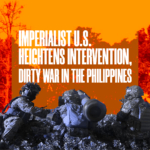
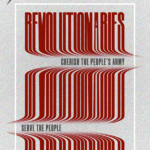
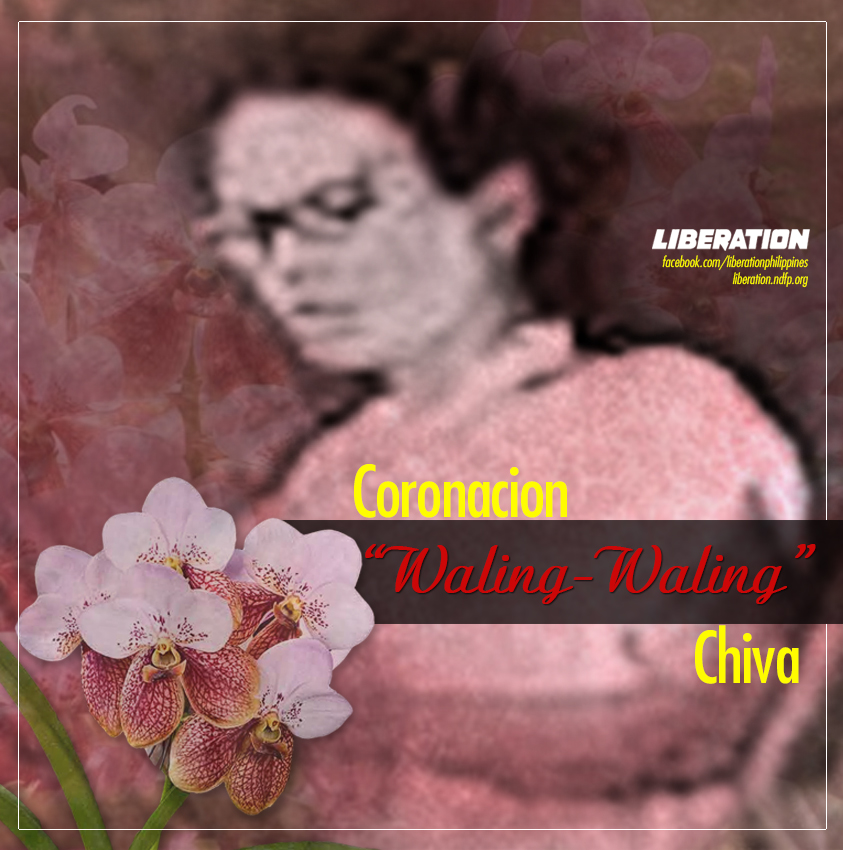
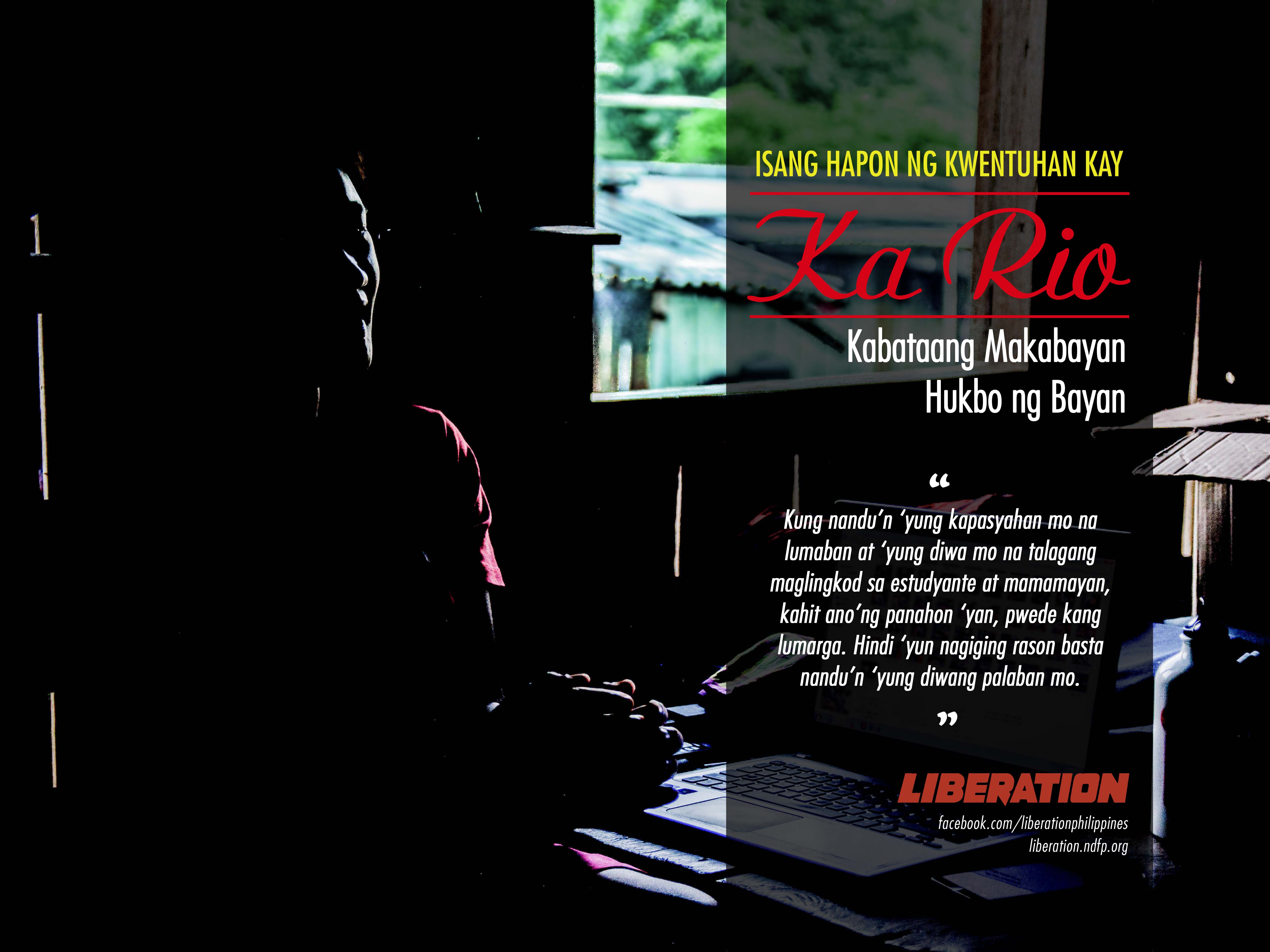
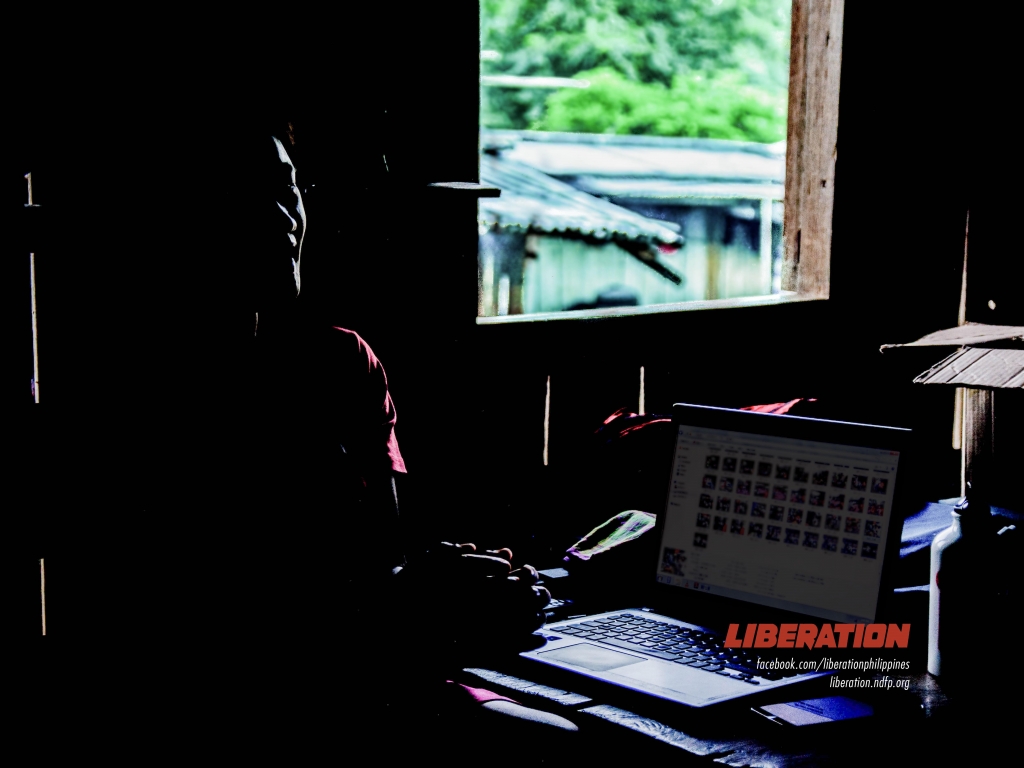
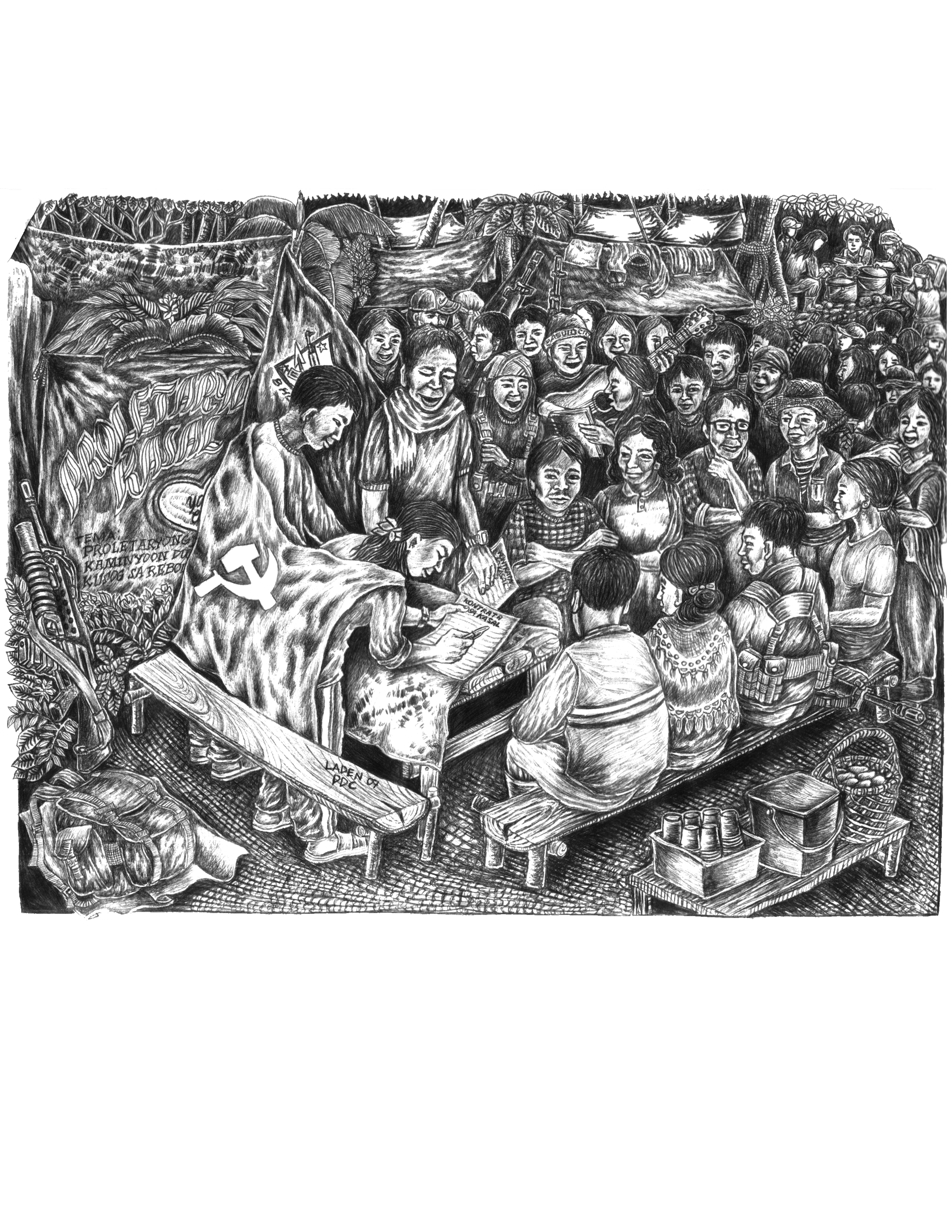
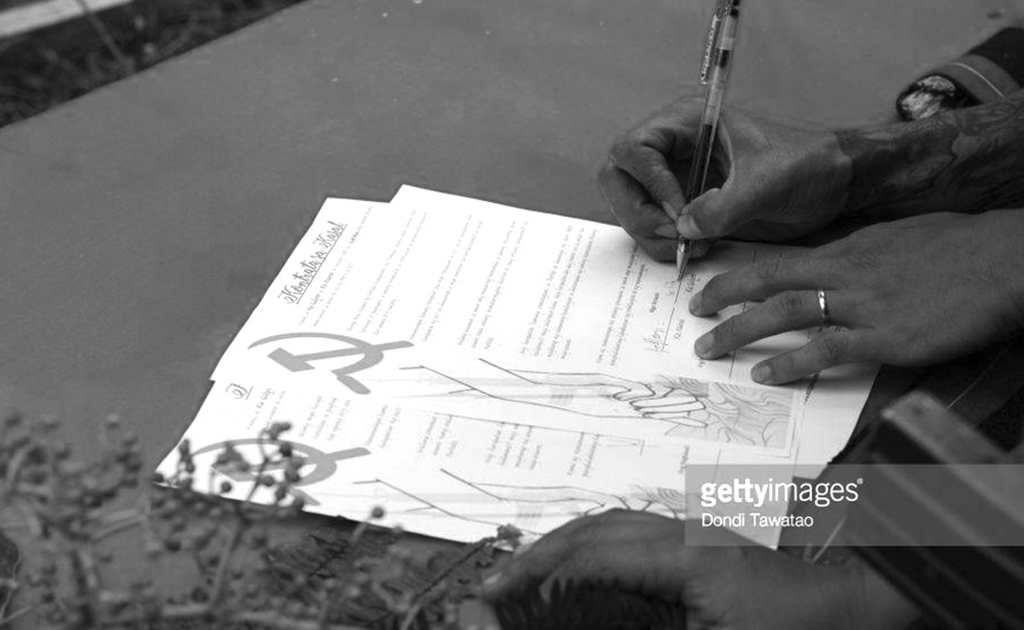
 “Marahas ang digma, pero mas marahas ang mga pinag-uugatan nito. Kapasyahan natin ang pagtahak sa landas na ito. Ang ating pagpili ay siyang ating pagtindig. Ang ating pagtindig ay atin ding panata. Panata, hindi lamang sa iyo, mahal, higit lalo sa bayan nating minamahal. Ang mga kabundukan ang ating paraisong tirahan, at sa piling ng minumutyang masa tayo ay napapanday.
“Marahas ang digma, pero mas marahas ang mga pinag-uugatan nito. Kapasyahan natin ang pagtahak sa landas na ito. Ang ating pagpili ay siyang ating pagtindig. Ang ating pagtindig ay atin ding panata. Panata, hindi lamang sa iyo, mahal, higit lalo sa bayan nating minamahal. Ang mga kabundukan ang ating paraisong tirahan, at sa piling ng minumutyang masa tayo ay napapanday.